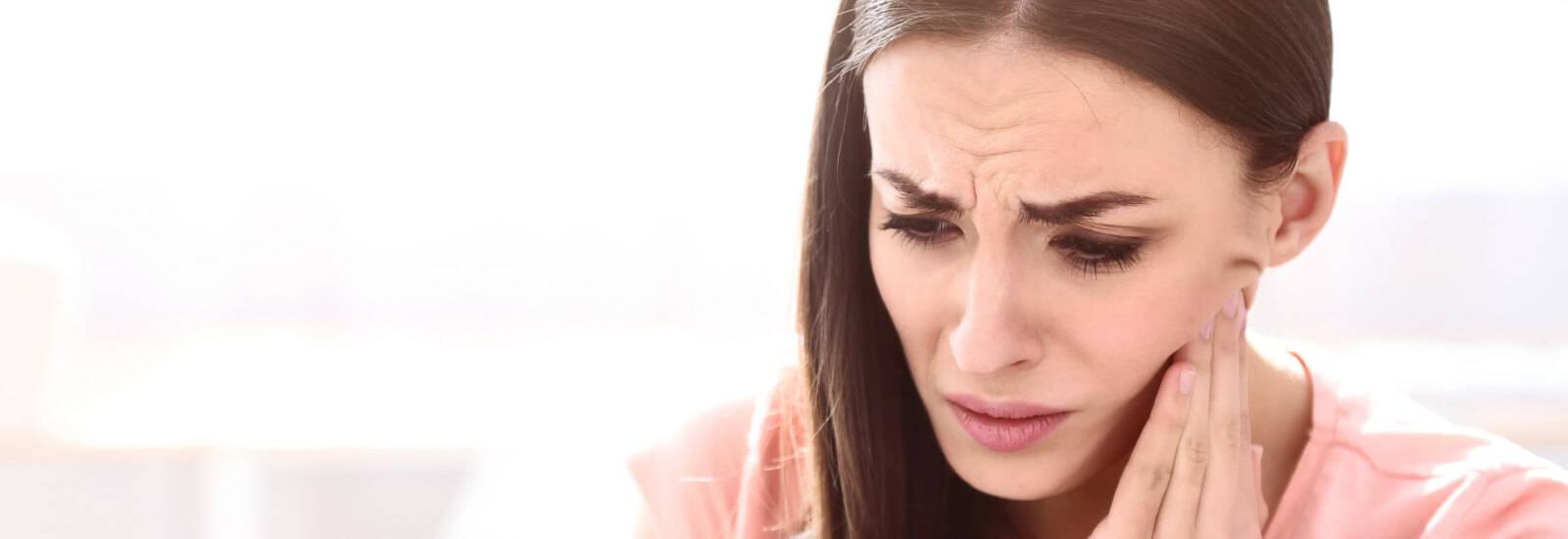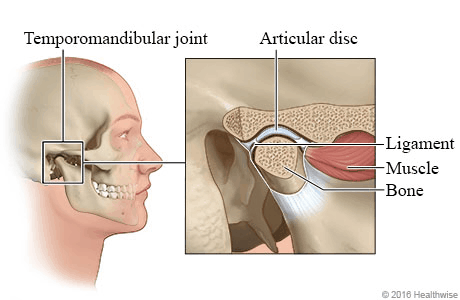TMJ or Temporomandibular Joint Disorder Treatment
Temporomandibular Joint [TMJ] disorder causes jaw joint pain. The shoulder, Neck, and Jaw are the main areas where the pain is experienced. This is a rare oral health-related problem observed which also has the possibility of causing migraine. Specific dental treatment can help to do the jaw movement properly.

Talk to a Dentist Now!
Temporomandibular Joint [TMJ] disorder causes pain in the jaws. This pain is also accompanied by the pain caused in the neck, shoulder, and jaw of that particular area. It is difficult initially to understand the cause of the pain at the initial stage, so a proper examination is required.
The jaw bone pain impacts the side of the neck and shoulder, which causes pain in that region. This impact is more observed when there is lower jaw pain. These are usually known as TMJ problems and must be treated sooner.
What Is TMJ?
Temporomandibular Joint [TMJ] disease is the pain caused due to the jaw joint. Tmj problems affect the nearby body area of the neck, shoulder, and face muscles. Temporomandibular disorders (TMDs) are problems that affect your temporomandibular joint (TMJ), or jaw joint. They also can affect the facial muscles that help you chew.

Deciding on the Right Treatment
Temporomandibular dysfunction includes a wide range of disorders that often overlap. They include:
- Muscle problems that affect jaw movement
Is It Your Jaw? A Symptoms Checklist for Temporomandibular Disorders
Temporomandibular disorders can cause symptoms that are similar to other diseases.
Surgery may be advised if conservative treatments do not relieve pain and help you move your jaw better. These earlier treatments may include splints, physical therapy, and medicines to treat pain and inflammation.

What are the ways for the TMJ disorder treatment?
Getting the proper examination from the dental expert is the initial step. In some cases, these dental experts may suggest temporomandibular joint dysfunction self-care. Here are several types of treatments.
Home treatments:
Here are some of the home treatment efforts to try:
- Using ice to reduce the swelling.
- Eating some soft foods.
- Avoiding unusual jaw movements.
- Avoid eating hard food items.
- Taking efforts to reduce the overall stress.
Medication:
Here are some medication solutions:
- Corticosteroids
- Nonsteroidal anti-inflammatory drugs
- Muscle relaxers
- Antidepressants
Physical Therapies:
- Cooling therapy
- Heat Therapy
- Acupuncture
- Resistance exercises
- Stretches
Why treatment of the TMJ disease, is Important?
If not treated soon, TMJ can cause several problems. It can lead to tension around the jaw and make the person feel discomfort for a certain period. So, if you ever detect that you are going through some of the symptoms, You need to approach a proper dental treatment provider.
Your earliest treatment can help you avoid other major problems and get treated soon. If you are looking for temporomandibular joint dysfunction treatments, you can visit the Sabka dentist for proper treatment.
Sabka Dentists have experts who are skilled and trained to do your proper examination to discover the problems and suggest the treatment. Sabka dentist has provided a better treatment solution for the pain in jaw joint problems. Come to our nearest branch from your location to get a better TMJ treatment solution.
Frequently Asked Question
What are the common Tmj symptoms observed?
The symptoms will depend on the cause and the severity of the TMJ disorders.
Here are some of the common Tmj symptoms observed:
- Muscle stiffness of the jaw.
- Pain in the neck & face.
- Not able to do complete jaw movement.
- Jaw locking.
- Wearing of the teeth dental issues.
- Headaches.
Usually, you may observe these tmj disorder symptoms on only one side of the face or both sides.
What are the causes of tmj problems?
Certain health conditions cause the tmj problems.
Here is the list of some causes:
- Arthritis
- Clenching or grinding of the teeth
- Structural jaw issues
- Disorders in the growth phase
About Author

Dr. Priyanka graduated in 2008, obtained her BDS degree from the faculty of dentistry at the Maharashtra University of Health Sciences. Upon graduating, she was selected to complete a multi-disciplinary hospital residency at Government Dental College and Hospital, Mumbai. This residency provided her with advanced training in all the specialties of dentistry. Dr. Priyanka then moved to private practice, working as an associate dentist.
Dr. Priyanka has a diploma in Soft Tissue Lasers from IALD and fellowship in Implant & Esthetic Dentistry. Dr. Priyanka completed MBA in Hospital Management and Clinical Research. She has worked at Sabka Dentist since 2012 and is pleased to say that their advanced technology allows dentists like her to provide patients with painless, gentle dentistry and a pleasant experience.



